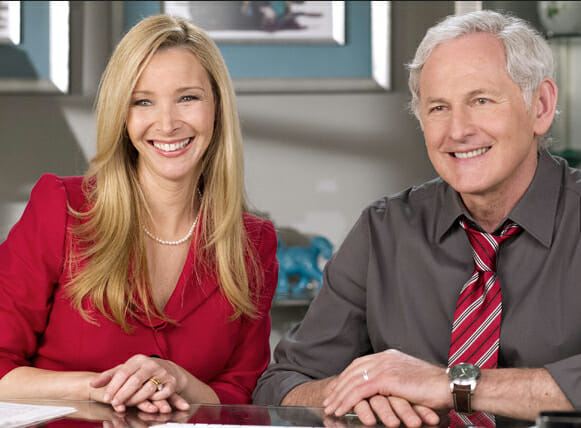Web Therapy: “Getting It Straight”/”Blindsides and Backsides” (Episodes 2.01/2/02)

Lisa Kudrow’s Web Therapy isn’t for everyone. But those who watch it understand how interesting and special the format and the show itself really are. Kudrow’s Friona Wallace is something else altogether. She’s a similar character to alternate timeline Phoebe Buffay (when she’s a high powered stock broker). Fiona is pretentious, self-absorbed and a walking cliché of a modern female anti-hero. But you can’t help but love her because the slew of guest stars that come across her iChat are even bigger buffoons. Watching the show is like watching Royal Tenenbaums. All of the characters are so disconnected with society, but unlike the Wes Anderson masterpiece, these characters aren’t adorable. They’re rough around the edges and frustrating at times.
If you missed out on the first season of Web Therapy, and I’m assuming most of you did, it’s not hard to catch up on what happened in the first 10 episodes thanks to a quick fire recap and you quite frankly can jump right into this season rather seamlessly. “Getting It Straight” focuses heavily on catching viewers up to speed, but doesn’t hold back from the ludicrousness that the first season was known for.
Fiona’s quasi-husband Kip (Victor Garber) is now running for a political position thanks to the backing of millionaire Austen Clarke (Alan Cumming). The trio kicks off the season discussing how the Wallaces should handle the media. Austen knows the ins and outs of Fiona and Kip’s relationship, which he should considering he and Fiona have something happening on the side, and is determined to win Wallace his campaign.
The show is truly about the art of conversation. It may not grab a lot of viewers, but those who do watch will pick up on the idiosyncrasies of each character’s conversations. Each different conversation builds upon the last. While I was watching the show I thought Fiona’s conversation with Austen’s right hand man, Maxine (Rosie O’Donnell), was going to be the highlight of the show. Watching the guest stars trying to throw Kudrow off her game is something real special. O’Donnell may not be the comedic queen she once was, but she definitely proves that she knows how to make things uncomfortably funny.
-

-

-

-

-

-

-

-

-

-

-

-

-

-

-

-

-

-

-

-

-

-

-

-

-

-

-

-

-

-

-

-

-

-

-

-

-

-

-

-








































